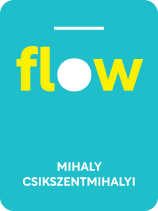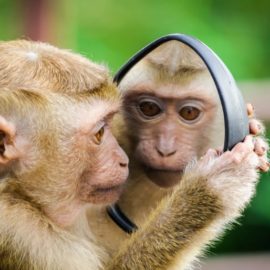

This article is an excerpt from the Shortform book guide to "Flow" by Mihaly Csikszentmihalyi. Shortform has the world's best summaries and analyses of books you should be reading.
Like this article? Sign up for a free trial here .
What is mental flow? How can you reach a flow state of mind by thinking?
There are a multitude of ways you can enter a flow state but one method that’s usually overlooked is through science. It’s possible to enter a mental flow by thinking or manipulating concepts in your mind.
Here’s how you can enter a mental flow through science.
Achieving Mental Flow
It may seem illogical to distinguish mental flow activities from physical activities that produce flow—all activity, whether primarily physical or not, requires some thinking to be enjoyable. For example, athletes have to practice mental discipline to be successful, and recognizing their achievements requires thinking. But the activities discussed in this article require symbolic thinking, or mentally manipulating concepts.
Mental Flow Through Science
The sciences offer a wide array of interesting topics, questions, and problems to explore. There are rules that limit possible solutions or answers, and the scientific method is a framework for testing ideas. What motivates people to solve problems is the challenge of solving them, and the satisfaction of having discovered something no one has before, while considerations such as improving the world come second.
People tend to think it takes an advanced degree, a research lab with expensive equipment, and the ability to manage intricate experiments to be a scientist. Though being part of a research institution can help with securing funding, publishing papers, and receiving recognition, you don’t have to be a trained scientist to enjoy studying science.
Here are the characteristics you need to study science as an amateur:
- Be curious.
- Learn from others’ studies. Cultivate an openness and skepticism for new ideas so as not to follow those that aren’t supported by facts.
- Observe the world and record your observations in detail.
- Develop an explanation that accounts for your observations.
Here are some examples of modern ways you can interact with science:
- Start a flower garden and make new crosses.
- Learn about a health issue that’s impacting you or someone else.
- Collect different types of rocks and characterize their properties.
Mental Flow and Philosophy
As with the sciences, there are many opportunities to be a philosopher (philosophy originally meant “love of wisdom”) without being part of an elite institution, such as a university or think tank. Here are the basic steps:
- Decide what to focus on. For example, perhaps you’d like to explore what it means for something to be “beautiful.”
- See what the field already thinks. Even if you only read or listen to material that you choose, you’ll glean a sense of what people think on the subject. For example, if you were curious about how reality works, you might focus your studies on ontology, or the branch of philosophy that covers being, and read the works of philosophers that cover it.
- Write your insights. Write out the question you had, or the problem confronting you, and share your insight describing your solution. Do it for your own learning rather than hoping it’ll be read and admired someday like famous philosophers.
How to Be a Life-Long Learner
If you don’t make an effort to learn and think for yourself once you’re out of school, you’ll be at the whim of what others around you think. Once you’re done with school, cultivate a desire to learn that comes from internal motivation rather than external motivation to get a passing grade. Learning what you’re about and how the world around you works is one of the most enriching things you can do to have a fulfilling and meaningful life.

———End of Preview———
Like what you just read? Read the rest of the world's best book summary and analysis of Mihaly Csikszentmihalyi's "Flow" at Shortform .
Here's what you'll find in our full Flow summary :
- Why people feel the happiest when they're in the "flow state"
- What activities and personality traits promote flow
- Why you may have a paradoxical relationship with work and leisure






